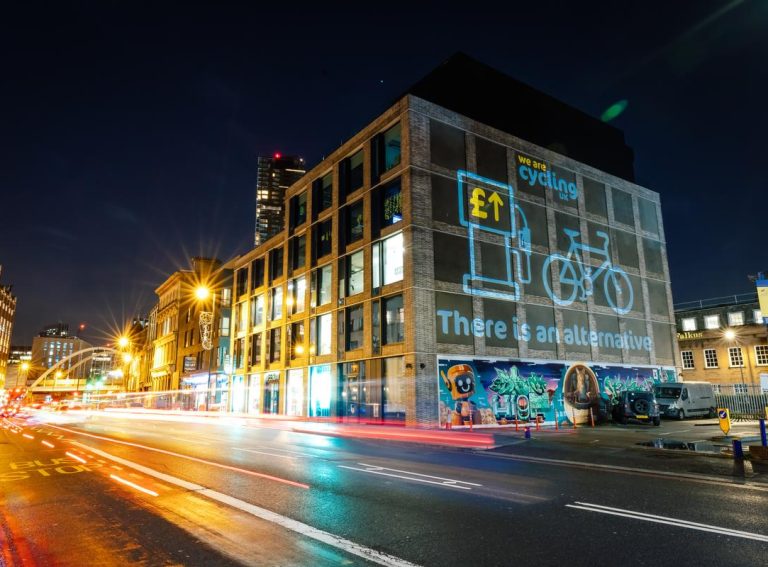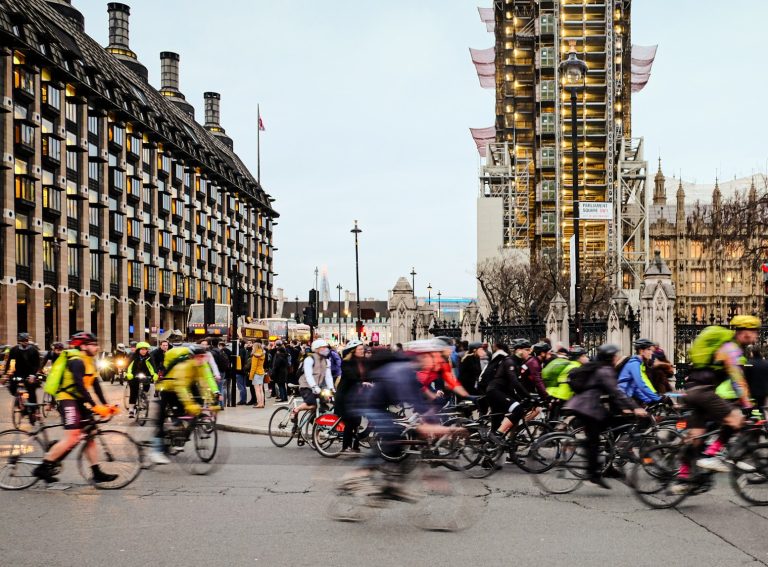Bike subscription brand Swapfiets has found that 90% of women fear urban cycling in the UK.
In a Censuswide survey of more than 2000 respondents, 79% of women said they fear being hit by a vehicle, 62% are scared of road rage or harassment, and 56% of women fear cycling at night.
The study also found that just 5% of women cycle to work compared with 20% of men.
“This goes beyond the typical cycling fears and highlights women’s overarching safety concerns regarding being vulnerable on the roads and in public spaces,” Swapfiets UK Country Manager Katarina Hlavata told Zag Daily.
“Clearly, these ingrained anxieties act as a major barrier preventing more women from taking up cycling.”
The government’s 2030 active travel pledge
Swapfiets said targeted efforts are needed to overcome women’s fears if the UK government is to stay on track with its 2030 active travel pledge that aims to see 50% of all urban journeys walked or cycled.
“Tackling these deep-seated fears requires more than just policy changes – it demands a fundamental cultural and societal shift.”
One action that Katarina advocates for is dedicated cycling initiatives from local councils to address women’s concerns. “Simple measures like ensuring all cycle routes are fully lit to allow for safer nighttime cycling would also make a difference. But overall, it will take a concerted effort across many fronts to reshape attitudes and make cycling feel like a safe, accessible option for women.”
The government announced £2 billion of investment into active travel in 2020 and £200 million was set aside for new cycling schemes in May 2022. This includes funding for the National Cycle Network which collates signed paths and routes for walking, cycling and wheeling in the UK.
“The government’s ‘Gear Change’ strategy initially outlined 33 ambitious policy plans for utilising this budget to get more people cycling. However, due to budget constraints, the Department for Transport has had to scale back what it could actually implement.
“While the full vision of Gear Change may not be met, there are still opportunities at the local level, such as providing funding and sponsorship for community cycling groups, particularly those focused on getting more women on bikes. Prioritising initiatives like these could make a meaningful difference.”
Behind the research
“Swapfiets is all about making cycling a worry-free experience. We conducted this research to better understand the key barriers facing everyone currently not cycling, which in turn revealed the need for us to hone in on the conversation around women’s issues.”
The subscription company has also partnered with social enterprise Loud Mobility on its ‘She’s Electric’ campaign, encouraging women to try e-bikes after its own research found that women are more confident using e-bikes than traditional pedal bikes.
“Ultimately, we hope shining a light on women’s distinct cycling needs and hesitations through our research will help highlight the need for change,” said Katarina.
“Addressing the systemic factors holding women back from cycling is critical if the UK wants to achieve its active travel goals and get more people transitioning to cycling for environmental and health benefits by 2030.”




